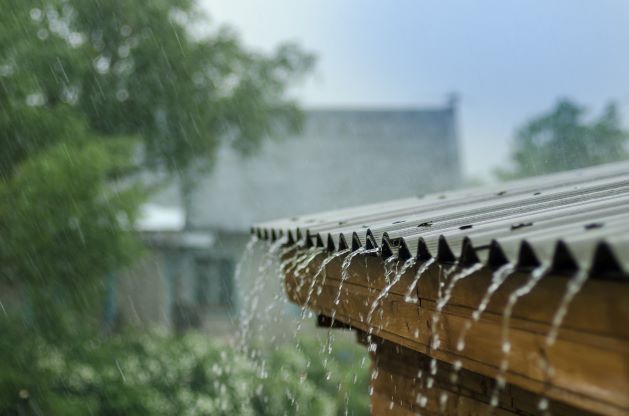How to Avoid a Flooded Basement During a Rainstorm

A flooded basement is a homeowner’s nightmare during a rainstorm. Not only does it cause significant damage to your belongings and home structure, but it can also pose a serious health risk if not properly addressed. Several factors, including heavy rain, clogged gutters, and cracks in the foundation, can cause a flooded basement. However, with proper planning and preparation, you can prevent a flooded basement and minimize the risk of damage to your home. Here are some effective ways to avoid a flooded basement during a rainstorm.
Table of Contents
Install a Sump Pump
A sump pump is a critical tool for preventing a flooded basement. It is installed in a sump pit, a hole in the basement floor designed to collect water. The sump pump collects the water in the pit and then pumps it outside the home. This helps keep the water from building up in the basement and causing damage.
If you already have a sump pump, it is important to test it regularly to ensure it is working properly. You can also consider installing a battery backup system to ensure that your sump pump continues to work even during a power outage.
Seal Any Cracks or Holes in Your Foundation
Cracks and holes in your foundation can be a major source of water in your basement. Water can easily seep through these openings and cause significant damage. To prevent this from happening, it is important to have your foundation inspected and sealed.
A professional contractor can inspect your foundation and determine if there are any cracks or holes that need to be sealed. They will then use a waterproofing material to fill the openings and prevent water from entering your basement.
Install a Backwater Valve
A backwater valve is a device that helps prevent sewage and other water from backing up into your home through the sewer lines. This can be a major water source in your basement, especially during heavy rains. You can prevent water from entering your basement and causing damage by installing a backwater valve.
Clean Your Gutters and Downspouts Regularly
Clogged gutters and downspouts can cause water to overflow and enter your basement. To prevent this from happening, it is important to clean your gutters and downspouts regularly. This involves removing leaves, debris, and other blockages that prevent water from flowing properly.
Having a professional inspect your gutters and downspouts is also a good idea to ensure they are properly installed and functioning. They can make repairs or upgrades to improve their performance and prevent water from entering your basement.
Install a French Drain
A French drain is a trench filled with gravel and a perforated pipe. It is designed to collect and redirect water away from your home, helping to prevent water from entering your basement. By installing a French drain, you can effectively manage water flow around your home and minimize the risk of a flooded basement.
Use a Dehumidifier
A dehumidifier can help remove moisture from your basement air, reducing the risk of mold growth. This can also help to prevent a flooded basement, as a dry basement is less likely to be affected by water damage. If you experience a flood, using a dehumidifier can also help speed up the drying process and prevent further damage.
Monitor the Weather and Prepare Accordingly
Staying informed about the weather can help you prepare better for a rainstorm. Check local weather reports and be aware of any storm warnings or watches in your area. If you know a storm is coming, take the time to prepare your home and make any necessary repairs or upgrades to minimize the risk of a flooded basement.
In the event of a severe storm, it is also important to have an emergency plan in place. Ensure you have all the necessary supplies, including a battery-powered radio, flashlights, and extra batteries. If you are instructed to evacuate your home, do so immediately.
A flooded basement can cause significant damage to your home and pose a serious health risk. However, by preparing and following the steps outlined above, you can minimize the risk of a flooded basement and keep your home safe during a rainstorm. If you experience water damage, it is important to contact a professional residential restoration company like Restoration 1 to assess the damage and provide the necessary services to get your home back to its pre-loss condition. With their expertise and state-of-the-art equipment, they can help you restore your home and protect your family from further harm.










